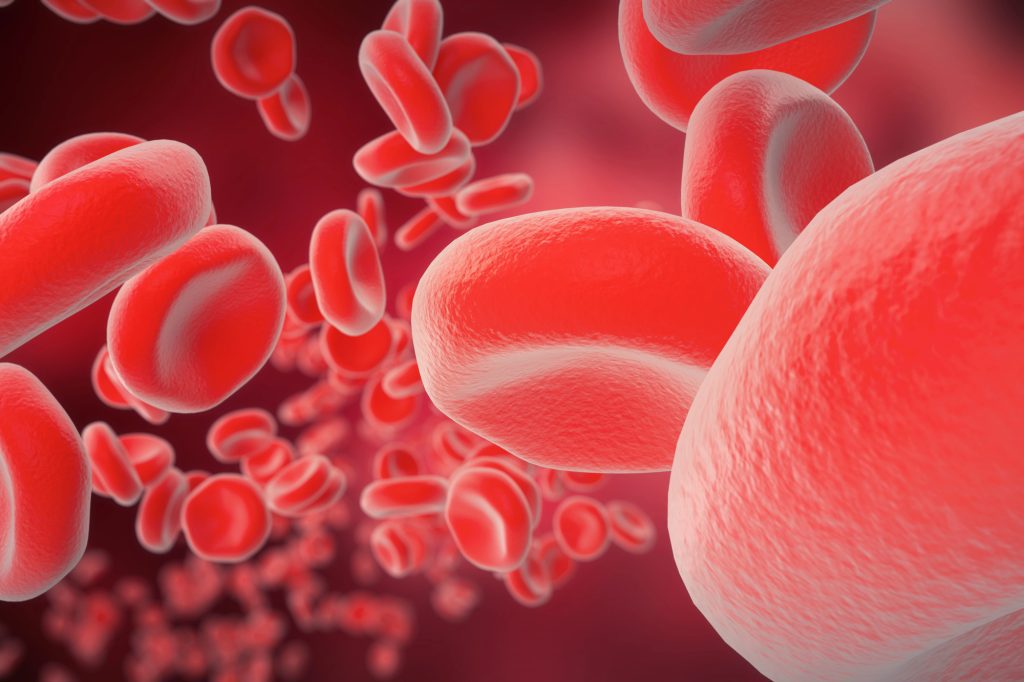Before you consider supplementing with melatonin, there are some things you may not know that should be factored into your decision.
Melatonin, a hormone your body makes naturally, manages your sleep-wake cycle. Even though it’s crucial for good sleep, exposure to light can interrupt its production.
You can replace it through food or supplements, but bear in mind, not all supplements are made the same. And they may interfere with other medications and even natural hormone production, making it a challenge to maintain a healthy balance.
Side effects include feeling sleepy, which could interrupt your daily activities.
If you’re struggling with sleep problems or dealing with chronic tiredness, there’s a wealth of helpful knowledge waiting for you here.
Dr. Gala’s Quick Take
Yes, Melatonin can help regulate sleep and support our circadian rhythm, but supplementing with it is not a foolproof remedy. Your body naturally produces melatonin, and you can boost it naturally with healthy lifestyle modifications.
How Melatonin Works In The Human Body

Melatonin, a hormone produced by your pineal gland, works to regulate your sleep-wake cycle and ensure you get a good night’s sleep. This potent hormone is your body’s natural response to darkness, triggering a series of signals that prepare you for sleep. As dusk sets in, your pineal gland springs into action, releasing melatonin to let your body know it’s time for some shut-eye.
However, your sleep-wake cycle isn’t the only thing melatonin manages. Your circadian rhythms, also known as your biological clock, control everything from mood to metabolism … and are also guided by this powerful hormone.
As an Oriental medicine practitioner, we’re trained to use the two-hour segments of the day that correlate to a specific organ or system to help us diagnose a problem. These segments of time are based on our circadian rhythms.
Depending on the segment of the day, the organ involved gets a little extra love. Extra energy is diverted to that organ to help it do its job or rejuvenate. During this window of time, it repairs the damage caused by normal wear and tear or worse. If you have symptoms that seem to repeat at around the same time every day, it points to what organ or body system might be involved.
From a scientific perspective, this internal clock is regulated by a part of the brain called the suprachiasmatic nucleus. It’s usually abbreviated as SCN, but as you can see, it’s a lot less “woo-woo” than it may seem at first.
What if you’re not feeling sleepy when you’re supposed to? Your circadian rhythms may be disrupted if you’re not feeling sleepy as you near 10PM.
This is why melatonin is vital for maintaining our body’s internal clock. Exposure to light at night can disrupt melatonin production, throwing your body’s natural rhythms into chaos.
For those dealing with temporary sleep disruption or struggling with the confusing effects of jet lag, melatonin supplements can be a lifesaver. Imitating the hormone’s effects, these supplements can help get your sleep-wake cycle back on track.
The science behind melatonin’s various roles beyond sleep regulation is still being explored. Acting wisely means staying informed as we continue to learn about these complex hormonal mechanisms.
Melatonin and Insulin Resistance
There’s some research suggesting how melatonin might be linked to insulin resistance.
Insulin resistance occurs when your body’s cells become less responsive to insulin … the hormone that regulates blood sugar levels. This can lead to weight gain, particularly around the abdomen, making it tough to use the stored fat for energy.
People with insulin resistance might also experience higher levels of inflammation, which can complicate weight loss and cause annoying aches and pains. Beyond weight gain, insulin resistance is linked to other health issues like:
- Type 2 diabetes
- Heart disease
- High blood pressure
The interesting thing is … research is indicating that low melatonin levels might play a role in this. Melatonin not only regulates our sleep-wake cycle but also has a regulatory effect on insulin release. Some studies show it can improve how your body handles insulin, which is important if you’re dealing with diabetes or other metabolic issues.
While melatonin supplements might help with insulin resistance and glucose metabolism, we need more research to know whether melatonin supplementation is an effective treatment.
Best Food And Natural Sources Of Melatonin

You might be amazed to find out that there are plenty of everyday foods that are natural sources of melatonin. Before you think about supplementing, it’s worth taking a look at how your diet might already be supplying you with this sleep-regulating hormone.
Identifying Melatonin-Rich Foods
If you’re looking for a natural way to increase your melatonin levels for improved sleep, there’s a surprising variety of foods – from cherries to olive oil – that are abundant in this sleep-regulating hormone.
Cherries, especially tart ones, are among the top natural sources of melatonin. Red grapes can also enhance your sleep quality with their melatonin content. Tomatoes also contain melatonin, making them a valuable addition to your diet.
For your nighttime nibble, consider walnuts, as they’re not only loaded with melatonin but also support overall sleep health. And walnuts are great for your brain too.
Natural Melatonin Production
While incorporating melatonin-rich foods into your diet is a positive move, it’s equally important to understand your body’s natural melatonin production and how you can enhance it for improved sleep. Darkness encourages your body to produce more melatonin, while light reduces it.
As mentioned above, eating foods like cherries, especially tart ones, grapes, tomatoes, walnuts, and olive oil, which are loaded with melatonin, can strengthen your sleep-wake cycles and harmonize your circadian rhythm. These foods aren’t miracle solutions, but they work in tandem with good sleep hygiene practices, creating a comprehensive approach to better rest.
Supplements Versus Natural Sources

Considering melatonin supplementation may seem easy, particularly when weighing supplements against natural food sources, each possessing their own unique melatonin content.
Cherries, for example, hold around 0.1 milligrams of melatonin per gram, making them a powerful natural source. Grapes, too, are abundant in melatonin, with red grapes leading the way. Tomatoes, especially their skin and seeds help with sleep regulation due to their melatonin content.
Walnuts are more than just a source of healthy fats and antioxidants; they also have melatonin. Olive oil, a common ingredient in the Mediterranean diet, also contributes positively to regulating melatonin levels.
Dietary Adjustments for Sleep
Before making a decision about using a melatonin supplement, think about how simple dietary adjustments like incorporating cherries, grapes, tomatoes, walnuts, and olive oil into your meals could help improve your sleep quality naturally. These foods are treasures of melatonin and other sleep-supporting nutrients.
For example, crunchy walnuts, are full of melatonin and omega-3 fatty acids. They support sleep regulation and heart health. And, olive oil, with its melatonin content and healthy fats, could lead to better sleep and overall well-being. Try these adjustments before supplementing to sleep peacefully!
Identifying Melatonin Deficiency Symptoms

If you’re having trouble falling asleep, experiencing disturbed sleep patterns, or feeling constantly sleepy during the day, you might be encountering symptoms of melatonin deficiency. It’s not a trivial issue; your sleep-wake cycle is a crucial factor in your overall wellness.
It’s crucial to highlight that melatonin deficiency doesn’t only result in sleeplessness. It can also usher in mood fluctuations and heightened sensitivity to light, which can further disrupt your sleep cycle. When your body’s natural rhythm is out of balance, you might find yourself feeling more exhausted, despite a full night’s sleep.
And the fatigue you may be experiencing isn’t just about feeling tired. It’s a signal that your body is finding it tough to manage essential functions. This can make you feel grumpy and can even influence your daily productivity.
Benefits Of Supplementing With Melatonin

The impact of melatonin deficiency can have you dragging through your day. Adding this hormone to your routine has a ton of benefits that could enhance your sleep and overall health.
As the main hormone that sets your sleep-wake cycles, melatonin is crucial for keeping a regular sleep pattern and enhancing the overall quality of your sleep. But there’s more to it. Melatonin has other bonuses you might find appealing.
- Antioxidant properties: Melatonin serves as an antioxidant, helping to lessen cell damage and uphold your overall health.
- Eye health: It may bolster eye health, shielding your vision by fighting off free radicals.
- Managing seasonal depression: Melatonin could be useful in handling seasonal depression, helping you maintain emotional equilibrium.
- Anti-inflammatory effects: Some research points to possible anti-inflammatory properties, aiding in the easing of chronic pain.
- Weight Loss: Melatonin might help with insulin resistance, a condition with increased insulin levels that results in fat accumulation and metabolic disorders. By improving insulin sensitivity, melatonin might help with weight loss.
Taking supplements long-term is never advisable so it’s best to amp up melatonin through your diet first. Remember, foods like cherries, grapes, tomatoes, walnuts, and olive oil are great natural sources of melatonin.
So, whether you’re looking to enhance your sleep or lift your overall health, melatonin could be the solution you’re searching for.
Cautions If You’re Considering Supplementing with Melatonin

If you’re considering melatonin supplementation, it’s important to understand the possible interactions and effects on your body. Melatonin supplements can interfere with blood thinners, immunosuppressants, and birth control pills. This interaction could elevate your risk of negative effects.
Unlike a water-soluble vitamin, melatonin is a hormone. Any excess isn’t easily eliminated by your body.
If you’re managing diabetes, proceed with caution. Melatonin may mix with your diabetes medications, possibly impacting your blood sugar levels. Also, if you have a seizure disorder, depression, high blood pressure, or an autoimmune disorder, it’s advisable to steer clear of melatonin due to potential risks and interactions.
Sleepiness is a common side effect of melatonin. So, you should avoid activities like driving or operating machinery within five hours of taking it. Safety should always be a priority.
Lastly, not all melatonin supplements are created equal. Their melatonin quality and content differ, making it important to select a trustworthy brand.
Being your own primary care person (PCP) means being informed and making wise, safe decisions about your health.
Key Takeaways
- Melatonin is a hormone essential for regulating your circadian rhythm, which affects everything from mood to metabolism. For temporary sleep disruptions or jet lag, melatonin supplements can help reset your sleep-wake cycle, but they are not a foolproof remedy.
- Before you consider supplementing with melatonin, evaluate the potential side effects, interactions with current medications, and the impact on natural hormone production.
- Consider enhancing melatonin naturally through diet and lifestyle changes before relying on supplements.
- Stay up to date on the research. Studies suggest that melatonin might help with insulin resistance and could improve how your body handles insulin.
- Melatonin supplements can interact with blood thinners, immunosuppressants, and diabetes medications. So it’s essential to proceed with caution if you are taking ANY medication.
Conclusion
Everything goes haywire when we’re not sleeping well. But supplementing with melatonin isn’t always the answer. It might help you fall asleep, but taking it in the middle of the night can make falling back to sleep difficult … especially between 1:00 and 3:00 AM.
This is the segment of our circadian rhythm when our liver is doing maintenance, and your natural melatonin is winding down. If you need help falling asleep, melatonin can be useful occasionally. But if you’re waking up in the middle of the night, it’s worth investigating further.
Before taking melatonin supplements, remember they are not a ‘foolproof’ remedy. Your body naturally produces melatonin, and certain foods can enhance this.
Use melatonin for short-term relief, as prolonged use may have risks. Don’t rely solely on supplements. Make lifestyle adjustments for better sleep.
Ultimately, your well-being is in your control. Make thoughtful decisions and choices that are best for you.
“If you came into my office, I’d ask you a lot of questions that would help us connect the dots … so that together we can deal with your toxic stress.
Every situation is unique and you need a plan that works for you. Not a one-size-fits-all solution.
If you’re thinking you can’t come into my office, don’t worry. I’ve created a program with all of my initial recommendations to help you unravel the mystery. You can use it at home and at your convenience.
So if you’re thinking that managing chronic stress just isn’t possible … or even the answer … for you, I want to show you what you may be missing.
And how you can identify the toxic stressors that are creating your symptoms with my Human Energy System Reboot. You can get started HERE.” – Dr. Gala







